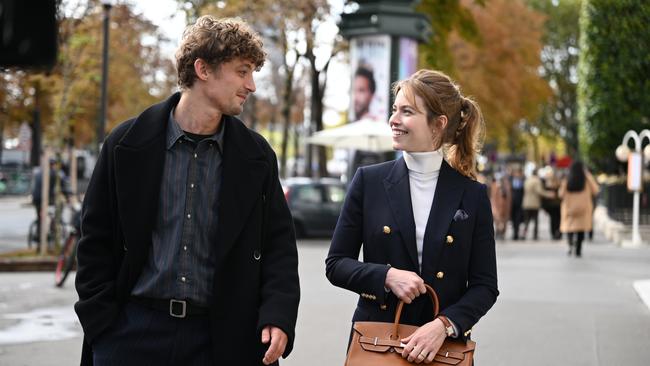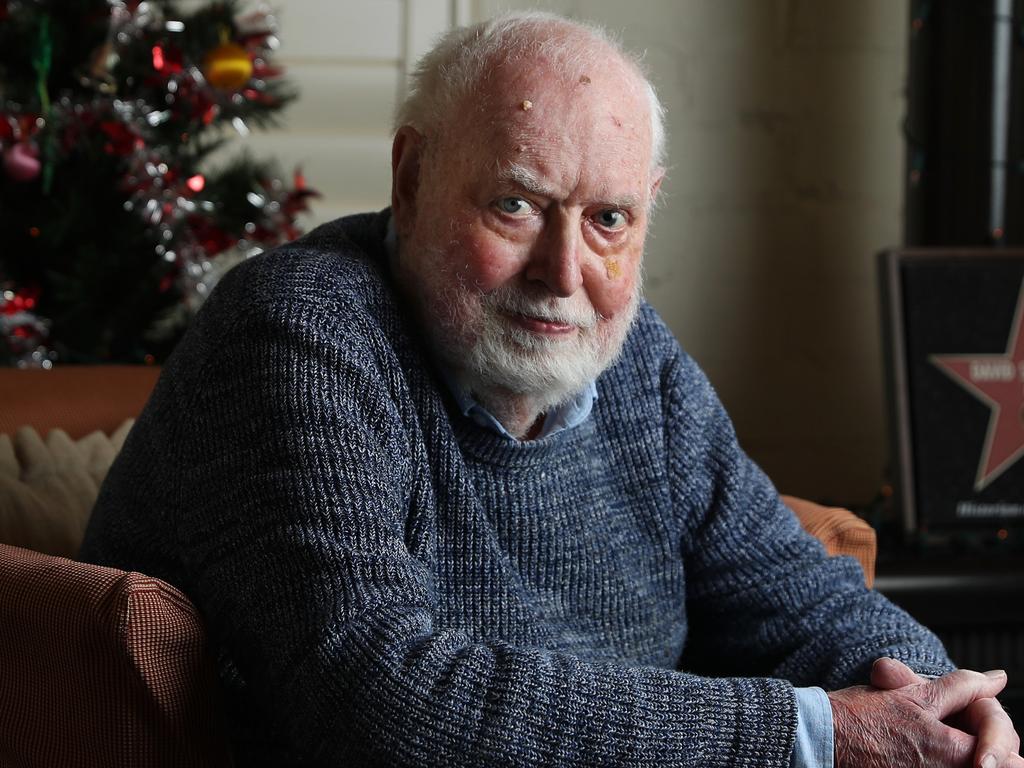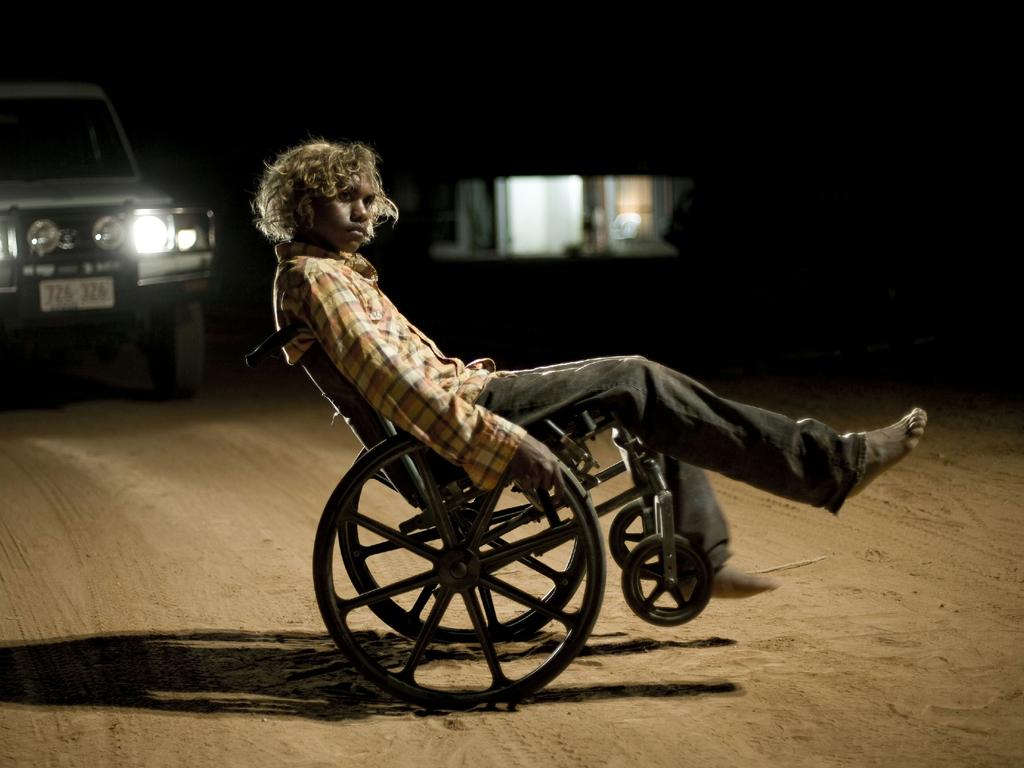Coup de chance review: Woody Allen’s work of art is a fitting swansong
In his final review for The Weekend Australian, David Stratton shares his take on Woody Allen’s 50th and likely last film – one the critic describes as ‘one of his best’.

Coup de chance
PG
In Cinemas
★★★★½
Let’s begin with the elephant in the room: Woody Allen has been accused of sexual abuse by his adopted daughter, Dylan. No charges have ever been laid, and he has vehemently denied the accusation, but the writer-director’s career has been profoundly affected. Two of his recent films: A Rainy Day in New York (2019) and Rifkin’s Festival (2020), have been denied cinema release in several countries, including Australia.
The fact that they’re not very good is neither here nor there – Allen, now aged 88, is manifestly one of the major American filmmakers of his generation and his work should be available for all to see. I am a firm believer that a work of art should be seen for what it is, regardless of the creator’s morals. Chinatown (1974) is a great movie, and will always be, whatever Roman Polanski may have done off-screen.
Allen’s talent is beyond dispute; he has received more Academy Award nominations for best original screenplay (16) than any other screenwriter and his work has won numerous awards, including the Oscar for Best Director for Annie Hall (1977).
Coup de chance is the 50th film Allen has directed and one of his best. It was made in France and is, to all intents and purposes, a French movie – if you didn’t know you might mistake it for the sort of top-quality French production that crops up annually in the French film festival.
But before looking at the film, which premiered at the Venice Film Festival earlier this year, I’d like to place it in the context of Allen’s fascinating career. Born and raised in The Bronx, he first came to prominence in the late 1950s writing gags for the television shows of comedy artists like Mel Brooks and Carl Reiner. From there he established himself as a stand-up comedian whose monologues seemed autobiographical – the musings of an intellectual, inhibited Jewish nerd. He wrote books and plays and started his film career as writer-director with broad comedies like Take the Money and Run (1969), Bananas (1971) and Sleeper (1973).
Annie Hall was a major advance, a bittersweet autobiographical account of his on-off relationship with actor Diane Keaton. It was witty, melancholy, wistful and tender, and it spoke to anyone who had experienced a loving relationship that, in the end, didn’t work out the way it should have.
Two years later he made Manhattan, his most elegant and beautiful film. Memorably photographed by Gordon Willis in black and white and widescreen, the film was a love letter to New York and the shot of Allen and Keaton silhouetted while sitting on a bench by the Hudson at night with the Queensboro Bridge as a backdrop remains one of the great cinematic images of the decade.
This was also the film in which Allen dealt candidly, and controversially, with a relationship between his middle-aged character and a lively, self-confident 17-year-old (Mariel Hemingway).
For several years it seemed Allen couldn’t put a foot wrong. Each of his films was successful. He paid tribute to European directors he admired: Fellini, in Stardust Memories (1980) inspired by 8½ (1963), and Radio Days (1987) by Amarcord (1973). He saluted Bergman’s Smiles of a Summer Night (1955) in A Midsummer Night’s Sex Comedy (1982); and Autumn Sonata (1978) in September (1987). He even paid tribute to the great silent comedian, Buster Keaton, with The Purple Rose of Cairo (1985). Some of his films, like Broadway Danny Rose (1984) and Bullets over Broadway (1994) are beguiling showbiz comedies told by an insider. At least until recently actors have loved working with Allen, although according to Judy Davis, who has made three films with him, he’s not exactly easy. Cate Blanchett won her Best Actress Oscar for Allen’s Blue Jasmine (2013).
I would say that Allen has made at least eight films that I would describe as major works; he’s also made some that were well below average but even other great directors, like John Ford, had their off days.
Though Allen has for the most part produced comedies, there has been a darker side to his work. Two of his best films, Crimes and Misdemeanours (1989) and the London-set Match Point (2005) both feature “ordinary” men who plot to commit murder. In Crimes, Martin Landau plays a respectable ophthalmologist who hires a man to kill the woman with whom he has been having a secret affair, while in Match Point Jonathan Rhys Meyers plays a social-climbing retired tennis pro who is torn between his rich fiancée (Emily Mortimer) and alluring mistress (Scarlett Johansson) and who eventually murders the latter. These two films are of considerable interest, not least for their connected themes but because they foreshadow Coup de chance.
The new film opens with a scene in which the vivacious Fanny (Lou De Laâge, excellent), who works in a Paris gallery, has a chance encounter on the boulevard with Alain (Niels Schneider) who admits he had a crush on her at school. Alain is a writer and lives in a well-appointed apartment, while Fanny is married to wealthy businessman Jean (Melvil Poupaud), who “makes rich people richer”. Jean is Fanny’s second husband – she was previously married to a Bohemian type we hear about but don’t encounter – but she’s a bit sick of being a trophy wife, of weekends in the country and parties for the very rich.
She starts seeing Alain for picnic lunches and visiting him in his spacious apartment and, inevitably, they begin an affair. Jean is suspicious and hires a private detective – the lovers are not cautious enough to evade detection. Jean, who, we discover, previously organised the elimination of a business rival, is clearly a dangerous adversary. The latter part of the film is to some extent dominated by the character of Fanny’s mother, Camille (Valérie Lemercier).
Flawlessly acted, elegantly directed, thematically intriguing, exquisitely photographed by veteran Vittorio Storaro and augmented with a terrific jazz score, Coup de chance – which literally means stroke of luck – is an enthralling film and if, as he has said, it will be his last, then the multi-talented Woody Allen will go out on a pretty high note.





To join the conversation, please log in. Don't have an account? Register
Join the conversation, you are commenting as Logout